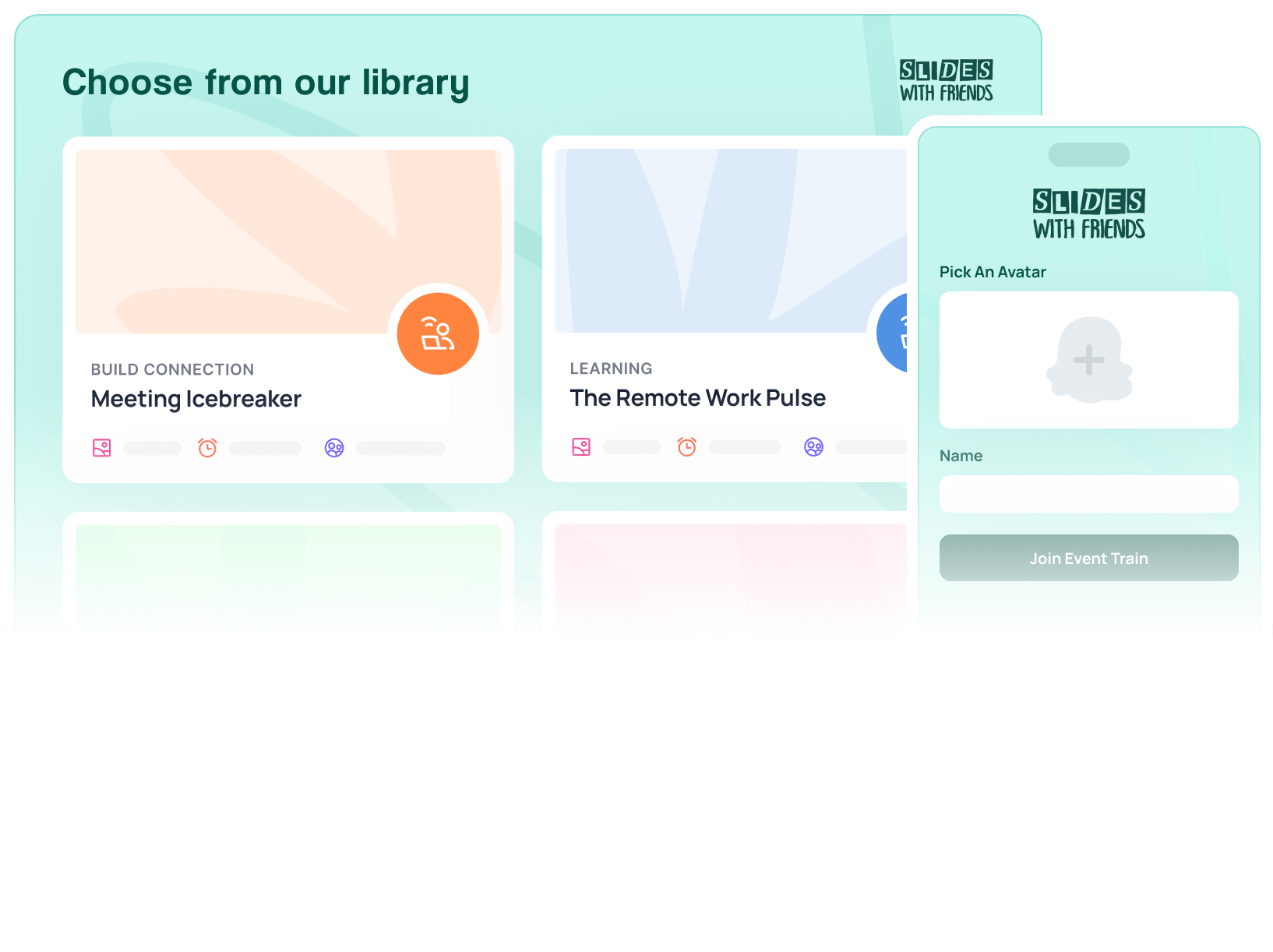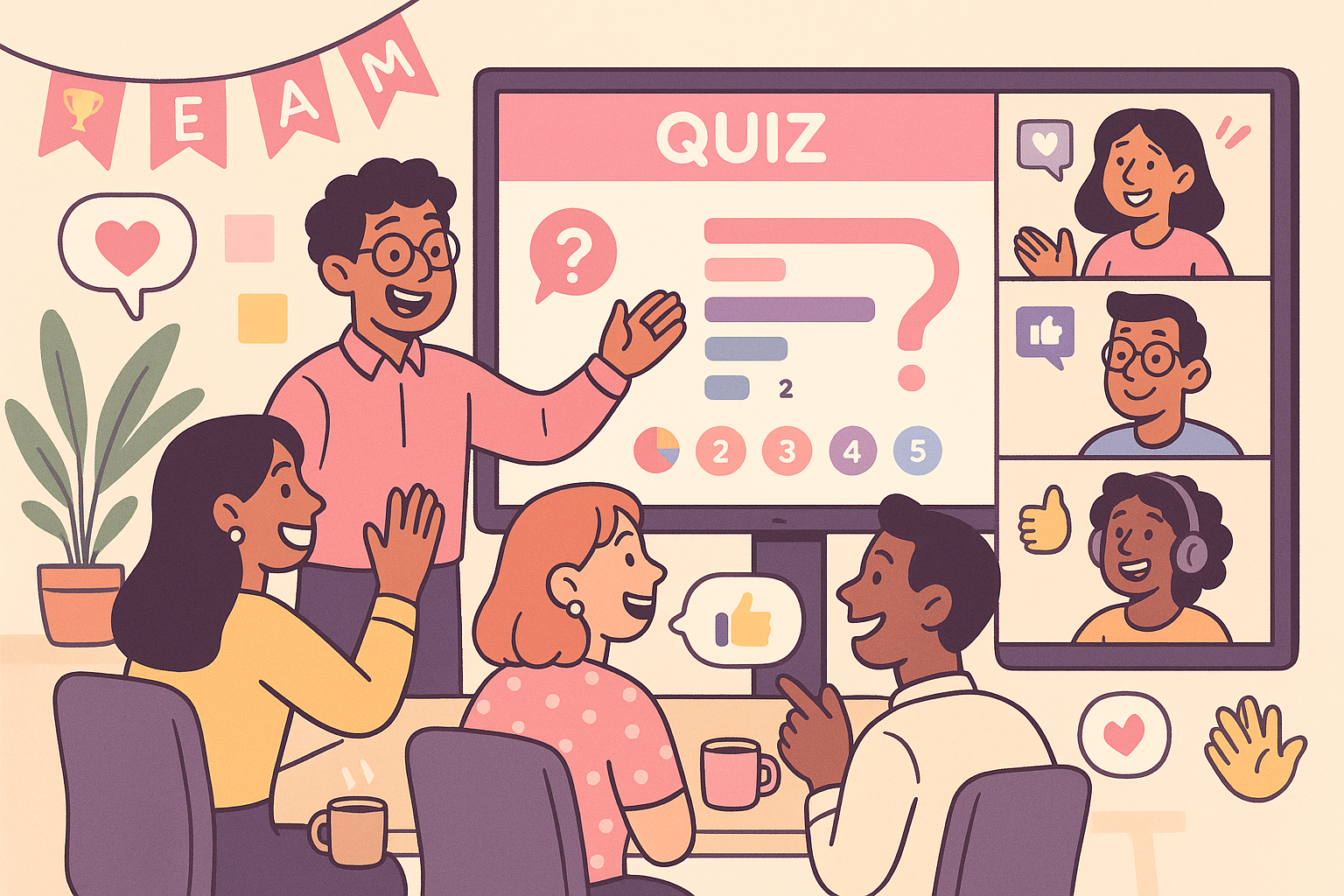10 Essential Employee Relations Training Courses for Workplace Harmony
Is your company experiencing tensions and conflicts? Discover the best employee relations training courses to foster workplace harmony and improve productivity.

Your company is made of people, and people don’t always get along. Quite the opposite in fact. Studies reveal that a staggering 85% of employees experience conflict to some degree. And conflict have a cost for everyone involved.
Employee conflicts cause tensions and stress. Stressed employees are less productive and skip more work days. The situation can get to a point where human resources need to get involved to de-escalate the situation, which diverts their attention from valuable tasks.
And, sometimes, that’s not enough. When conflicts become unbearable, employees leave your company. And since turnover can cost up to twice an employee's annual salary, investing in relationship training is not only a preventative measure, but also a cost-effective strategy.
But you don’t have to lose your treasured employees over conflicts. Wave goodbye to workplace woes with proper employee training. These courses come in two flavors:
- Courses that teach employees how to deal with everyday squabbles. Examples include Diversity, Equity and Inclusion (DEI) training and Workplace Ethics.
- Courses that teach HR and Managers how to resolve complex personnel issues. Examples include Advanced Employee Relations and Leadership Development.
To help you pick the course that fits your needs, we curated a list of the best courses in the field. Let’s get started.
Employee-Focused Courses
The courses we’re about to list focus on teaching your employees how to work in a social environment.
If you feel like the issues you’re facing stem from misunderstandings or poor communication among team members, these are the courses for you.
Diversity, Equity, & Inclusion (DEI)
Workforces are getting more global by the day. As a result, companies employ people from diverse cultural backgrounds. The loss of workforce homogeneity offers opportunities, but it also comes with challenges.
A typical scenario: Someone makes a joke that targets a colleague’s cultural stereotype. The colleague gets upset at the joke. Tensions rise between the two workers. This tension could cause bottlenecks in production, and even fights in the office.
Those are the situations that Coursera’s DEI training aims to prevent. This course teaches employees how to understand bias and how to work on their biases to promote a more inclusive culture. Learners engage with case studies and interactive content to apply what they learn in real-world scenarios.
But what if you don't need a full course with bells and whistles? We have the solution for you: our DEI training deck.
With our platform, you can host a dynamic and engaging DEI workshop. It will take you a few clicks to customize the slides and adapt them to your company. Start a workshop, share its QR code or URL, and wait for people to join. Once everyone is in, the exploration of DEI starts. Use quizzes, polls, and discussion prompts to encourage participation and open dialogue. These features helps embed DEI principles deeply into the team's everyday interactions, promoting understanding and empathy across diverse groups.
These courses helps businesses create an amicable workplace, where no one feels singled out because of who they are. And it helps employees better understand their colleagues.
If you want to promote a team environment where diversity is seen as a strength, this course is for you.
Ethics Training: Professionalism in the Workplace
Competition between colleagues is good. But, sometimes, it goes too far. Picture this: a new employee notices that some colleagues are bypassing company protocols to close deals faster. It boosts sales numbers, but it is ethically dubious. These actions could jeopardize the company's reputation and compliance standing. The employee feels conflicted about whether to speak up or follow suit.
Ethics training teaches employees how to face these cases. And one of the best courses on the topic is this ethics training by the Compliance Training Group. The course's aim is to instill a strong sense of professionalism and integrity in the workplace. Its topics include ethical decision-making and avoiding conflicts of interests among employees. Your workers are mirrors of your company. If they skirt regulations, your company does too. And that hits your reputation, as well as causing legal issues.
Alternatively, you can host a training in-house. That way, you can tailor it for your company’s needs, with more relatable examples and scenarios. You can then use one of our decks to quiz the audience once the session is over.
Here’s a solid starting point:
Edit it accordingly, and test your employees after the training workshop. You can either hire external help, or have an internal employee who’s an expert on ethics to host the training.
These courses are particularly beneficial for those in roles where ethical dilemmas are common, including sales, management, and operations. Their structure ensures that participants understand how to apply ethical principles in practice, promoting a culture of integrity and professionalism.
Dealing with Microaggressions at Work
Microaggressions are hard to pin down. What someone says in jest might come off as a slight, making a team member feel undervalued and isolated. These episodes — often unintended — can erode team cohesion and impact employee morale and productivity.
If that’s what happens in your organization, consider investing in Udemy’s course about microaggressions course. The course addresses the main issue with microaggressions: recognizing them. It’s easy to dismiss someone’s complaint as them being touchy. But the truth is, they really feel attacked by their colleague’s comments.
Additionally, the course covers the psychological impact of microaggressions. How they can undermine a professional environment? And how can effective communication address and prevent them?
Learners in all roles will benefit from taking this course.
Code of Conduct Training
Your company's code of conduct is more than a set of written feel-good platitudes. It's an outline of the ethical and professional standards expected of every worker. There are real risks associated with breaking the code of conduct. One, it can lead to a breakdown in trust. Two, it disrupts workplace harmony. And three, it can lead to severe legal and financial consequences for your company.
Skillsoft’s code of conduct training makes your code of conduct come to life. The course teaches employees everything they need to know about the standards and behaviors you expect from them.
Plus, with an ever-changing legal landscape, workers must stay updated on the latest regulations. And one of the course's goal is to give employees the tools to navigate the protean regulatory environment. All while following the company's code of conduct.
Professional Communication Skills
Professional communication is an area in which most organization struggles. A 2011 study by Fierce Inc. reports that 86% of employees cite lack of collaboration for workplace failures. And collaboration begins with communication.
The communication skills course by British Council helps your employees work on their communication skills. This course offers practical strategies and tools to improve interpersonal effectiveness, cultural competence, and conflict resolution skills in a professional setting.
The course is ideal for all skill levels, and touches on both spoken and written communication. By investing in this course you will improve your company’s internal communication. That way, you will reduce potential misunderstandings and steer the organization towards greater efficiency and success.
Communication is an ongoing process; you should support it at any step. For example, you can promote communication among new team members with this Slides With Friends deck:
The idea is to get the new hires to know their team, which will incentivize them to start communicating with their peers. Sometimes it feels awkward to join a group when you don’t know anyone. But you can break the initial barrier by introducing your new hire to their coworkers.
Enhanced communication fosters a more engaged workforce, encourages innovation, and aligns goals across departments, ensuring everyone moves in the same direction with clarity and purpose.
Enhanced communication fosters a more engaged workforce, encourages innovation, and aligns goals across departments, ensuring everyone moves in the same direction with clarity and purpose.
HR- and Manager-Focused Courses
In this section we focus on courses for managers and HR professionals. They teach advanced skills for navigating complex workplace dynamics and improving employee relations.
These programs are ideal if you're looking to enhance leadership capabilities and effectively manage diverse teams in challenging situations.
Employee Relations: Creating a Positive Work Environment
Company growth is intoxicating. To the point where some departments feel in a constant fight with others. Why? To prove their higher impact on growth. Competition drives innovation, but it becomes toxic past a certain point.
If you feel like your company has fallen prey to this toxic competition, consider investing in SHRM's employee relations course.
The course teaches HR professionals and managers how to shape the workplace. It covers key aspects of employee relations like:
- Strategies for effective communication
- Conflict resolution
- Fostering a culture of respect and collaboration.
SHRM built the course with HR professionals and team leaders in mind. If you struggle to keep peace in the office, and feel like you get too many complaints, this course is for you. With this investment, you’ll be able to create a workplace where tranquility reigns.
Misconduct Investigations: Get Them Right from the Start
Misconducts happen. There’s nothing you can do about it. And that’s why you must know how to investigate them. A misconduct is like a wound: you want to treat immediately, or you risk letting it fester and spread. Which, eventually, causes greater harm and more severe consequences for the entire organization.
But leading a proper investigation is tough. You need a keen understanding of legal and ethical standards. Plus, strong interpersonal skills to handle sensitive situations with tact and confidentiality.
That's the focus of the misconduct investigations training offered by the Federal Employment Law Training Group.
This virtual training event gives HR professionals and managers the skills to conduct effective investigations. It will improve your company's internal investigation skills. Which, in turn, leads to fairness and confidentiality among employees.
Advanced Employee Relations and Internal Investigations Certificate
Here's a scenario that happens somewhat often at large companies. Rumors and complaints about a manager's discriminatory behavior begin to surface. The allegations create a hostile work environment. Trust erodes, and legal action is coming unless the situation gets sorted out.
These are the kind of scenario Cornell targets with its advanced course. HR professionals often deal with nuanced situations where there's no easy right or wrong answer. And without proper training, they risk making a bad choice. Or worse, ignoring the situation altogether. That can turn out costly for your organization.
By investing in this course, your team leaders learn topics such as:
- The legal framework of employee relations
- Effective techniques for conducting internal investigations
- Handling delicate employee complaints
- Implementing disciplinary procedures without escalating conflicts.
The course is ideal for HR managers and employee relations specialists. But ti applies to anyone involved in handling workplace issues or internal investigations.
Managing Remote and Hybrid Teams
Remote work has been a mixed bag. Some companies saw a boost in productivity. Others have seen their output fall below acceptable levels. Regardless of which camp you find yourself in, you can improve your hybrid and remote employees’ productivity.
A typical problems remote companies face is that of employee engagement. People who work remotely often don’t really feel like part of a team. Instead, they may feel like lone wolves with distant peers to whom they aren't attached.
There’s a way to deal with the issue: remote games. With remote games, you can create unique shared experiences and organically promote collaboration.
If you’re unsure how to get started, here are a few Slides With Friends decks you can try:
https://slideswith.com/preview/15713
https://slideswith.com/preview/6900
https://slideswith.com/preview/383
If you’re looking for a fully-fledged course, Stanford Online has you covered. Its hybrid-remote managing course provides leaders with the strategies needed to effectively manage and integrate remote and hybrid workforces.
This course is a solid investment if you feel like you’re struggling with getting the most out of remote workers. The curriculum focuses on optimizing communication channels, letting you communicate with people as if in person, despite the screens separating you.
Course participants report improvements in their management practices, noting better team dynamics and increased productivity.
Labor Relations
Your workforce is what makes the company produce. And your workforce has demands. Demands that you can't always meet. Sometimes, the negotiations go awry, ending up with a strike.
That's where labor relations professionals thrive. They manage the relationship between a company and its workforce. They negotiate with the workforce's representative to craft deals that please both parties.
If you find your company often quarrels with their workforce, consider investing in this labor relations professional program offered by Michigan State University.
The course teaches advanced skills in collective bargaining, labor law, and dispute resolution. Successful negotiation comes when both parties come out with something they want. And to get what you want while giving the other side what they want, you need proper skills. Skills your managers will learn in this program.
By investing in this course, you get a professional who can keep your workforce working for you, while they also feel their needs and rights are respected and met. This balance can lead to greater productivity, fewer conflicts, and a more harmonious workplace environment.
Wrapping Up
Many companies view employee relations training as an extra expense. They cave in, thinking it's worth it because it prevents headaches down the line. Yet, improving employee relations does much more than that.
Chiefly, it improves productivity. A peaceful environment means that employees can focus on their tasks, rather than occupying themselves with social bickering and infighting. In the same vein, your HR team can focus on more productive tasks.
But your company's image also improves. Courses in ethics and communications turn your employees into a mirror of your company. Outsiders will see that your company and its workers are trustworthy. Which leads to better brand recognition.
Furthermore, investing in employee relations helps you build a resilient organization ready to face any challenge.
Whether addressing everyday misunderstandings or complex legal disputes, the courses we've explored offer your leaders and employees the tools they need to succeed.


Ready to ditch the dull, and run team sessions that people will actually enjoy?
Get started with a Slides with Friends deck in no time. We’ve got all the interactive features you need in one easy-to-learn, easy-to-set-up tool.















